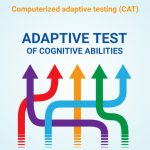Written by: Marija Biuk, psychologist.
Very often during the selection process the best candidates are the ones who have more work experience, but is this always the case?! When they were looking for employees for their call centre, Xerox stopped assessing people based on work experience, because results showed that previous work experience was not as important for this type of position. What turned out as important is the candidate’s personality…
When selecting candidates we must ask ourselves how important is the candidate’s work experience is and what was the work culture like on his/her previous work position. When interviewing such a candidate we will often come to realize that their work task at a previous job was often repetitive, simple, that they had no autonomy or responsibility and that they were working in a work environment with flexible work morale. We can also come to the conclusion that they were mentored by expert individuals who didn’t train them how to do their job fast and efficient or who, for example, used out-dated work methods. If we reach these kinds of conclusions, this doesn’t mean we will automatically disregard this XY candidate from further selection, but this valuable information can become a basis for defining the employee XY’s prospective training.
One of the first steps in the selection of candidates is going through the CVs of the candidates who applied for the position. In the midst of the colourful CVs, it is common to “get caught” on two categories, education and previous work experience. If a candidate has ample work experience, he is usually “more interesting” to an employer than the one without work experience, regardless of the level of education acquired. But, is this really the case and what are the “traps” hidden by previous work experience?
Big employer’s experience:
“…I don’t go through the CVs anymore before deciding whether to call a candidate to an interview or not ”, says Teri Morse, who supervises the employment of more than 30,000 people in Xerox every year. Instead, they analyze data on candidates who have to pass a test with a series of different questions, which, among other things, assess types of personality and future employee’s success. They have given up on looking at CVs based on previous experience, because data showed that previous experience is not crucial for this job position! What turned out to be crucial was the candidate’s personality…
Research:
Research somewhat confirms the employers’ experience. In this part we will reflect on more recent research conducted by authors Dokko, Wilk and Rothbard (2008) which test the influence of relevant work experience (in the same industry or profession) on job performance in a different employer’s company. The mentioned research was conducted on a sample of 771 employees and job candidates in two call centres of two major American insurance companies, during which the job performance of the employees was analysed and the development of their skills and their knowledge. The authors tested the correlation of job performance and skills with previous work experience and the work experience in the present company. As it was expected, previous work experience in other companies was connected with higher levels of knowledge and skills which resulted in better evaluations of job performance in the new companies. However, when the authors considered the employee’s initial knowledge and skills they had when entering the company, they got a slightly lower job performance, that is, they saw the „costs“ the experienced employers make for the company. Wilk et al. as expenses list old habits and ways of performing a task which are not necessarily efficient in the new companies and are conceptually called behavioural and cognitive rigidity. They state it is extremely important to make a good estimate of the previous work experience and its effect on job performance so the companies could develop a good selection process, training and socialization of the new employees. They also state that how the new employee fits the organizational structure of the new company is very important, that is, does the new company have similar work culture habits as the previous one where the employee performed the same job. If the new company’s standards are the same as the employee’s expectations which he acquired at the previous position, then we can expect the employee will soon become a part of the company and the quality of his job performance will be superb.
The study also shows that employees who spent more of their work time in insurance companies benefited less from previous work experience in other companies, while it was harder to get rid of negative effects (expenses) which shows that behavioural and cognitive rigidities are very stable (“old habits die hard”). This conclusion can be practically applied – because it points to individual differences in types of personality of the employees, that is, to the level of adaptability which can become crucial when assessing the level of employee’s success at a given workplace.
Note! Job performance can be relatively easily predicted based on the following criteria: work sample, cognitive ability test (intellectual functioning), structured interview, specific knowledge and skills test, integrity test, assessment centres and personality tests (integrity as the most important predictor and emotional stability). Methods that are somewhat less successful in predicting job performance are: recommendations, work experience, number of years spent in school and GPA. Also, in order to select the best candidate you should use as many methods possible, because that way you lower the risk of employment.
Very often during the selection process, the candidates with the most experience are the best ones, but this is not always the case! Top candidate, except work experience, has very good work ethics (high integrity; is detail-oriented and persistent), general intellectuality and good social and communication skills.
Want to know more? You can find more information on the following links
- http://darhiv.ffzg.unizg.hr/1793/1/Sverko_2003_Suvremena-psihologija_6_293.pdfHYPERLINK “http://darhiv.ffzg.unizg.hr/1793/1/Sverko_2003_Suvremena-psihologija_6_293.pdf (“ (Novije spoznaje o valjanosti selekcijskih metoda: od doktrine o situacijskoj specifičnosti do postavke o generalizaciji valjanosti; Šverko B., Suvremena psihologija, 2003.)
- http://knowledge.wharton.upenn.edu/wp-content/uploads/2013/09/13552.pdf(Unpacking Prior Experience: How Career History Affects Job Performance; Dokko G., Wilk L.S. & Rothbard N.P., Organization Science, 2008.)
- http://www.siop.org/Workplace/employment%20testing/testtypes.aspx
- https://www.umbel.com/blog/big-data/recruiters-big-data/(Top 5 Things Recruiters Should Ask Their Big Data)
- http://www.ft.com/cms/s/2/e3561cd0-dd11-11e3-8546-00144feabdc0.html#axzz3CslfhAu7(Forget the CV, data decide careers)
 English
English



